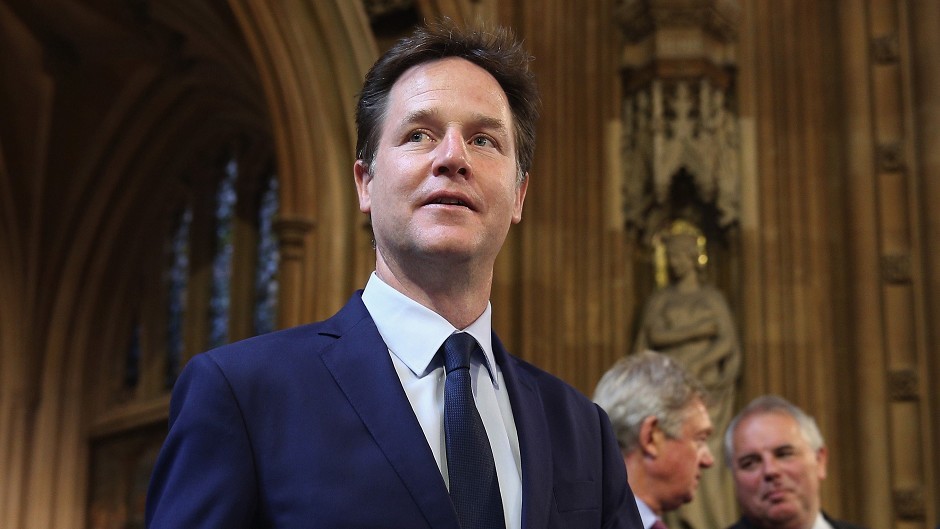Nick Clegg has retreated on his suggestion there is now a “compelling case” for Scottish independence in the wake of the Brexit vote.
In a letter to Scottish party leader Willie Rennie, the former deputy prime minister insisted he had an “unshakeable belief” in the UK.
Mr Clegg, who prominently campaigned for the union during the 2014 referendum, argued independence would “compound” the problems caused by the UK-wide vote to leave the EU.
Earlier this week, Mr Clegg – who served in a coalition government with the Conservatives from 2010 to 2015 – said it would now be “very difficult” to argue against the “compelling case” for Scotland to separate.
But in the letter he countered: “I have a life-long, unshakeable belief in our family of nations.
“I do not believe there is a compelling case for independence, though the SNP will, of course, use all of their efforts to present it as such.
“Compounding the problems of Brexit with the problems of independence is not my answer to the result of the EU referendum.
“That is why I reject independence. I want to keep Scotland in the UK and the UK in Europe.”
Senior Liberal Democrat politicians had faced calls to distance themselves from Mr Clegg’s original comments by north-east Tory MSP Peter Chapman.
In response, Mr Rennie’s party said the Conservatives had an “utter cheek” given how “their referendum gamble had put the future of the UK at risk”.
And Mr Clegg also took a swipe at both the Tories and the SNP, claiming “everyone loses” under their party policies.
He wrote: “It is surprising to me that neither the SNP nor the Conservatives can see the inconsistency in their positions.
“Recognising the need for interdependence, unity and strength in today’s world means working within and benefiting from both unions – the United Kingdom and the EU.
“For the Nationalists to reject the former and the Tories to reject the latter means the same thing.
“Everyone loses.”
Despite a rise in support for independence in the immediate aftermath of the UK-wide vote to leave the EU, more recent surveys suggest that enthusiasm has cooled.
Earlier this week, an Ipsos/Mori poll put support for independence at 48% among those certain to vote in a potential re-run of the 2014 contest.
